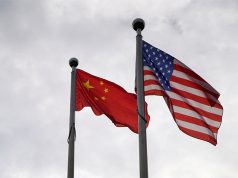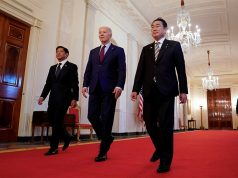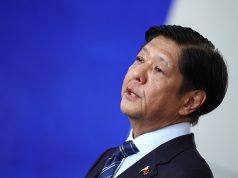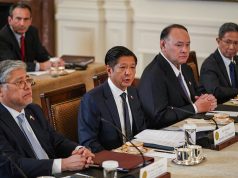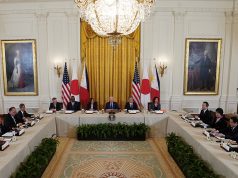
Despite a video showing otherwise, a popular blogger identified with the Duterte administration challenged the allegations of piracy against the Chinese coast guard that stopped Filipino fishermen near Scarborough Shoal.
Sass Rogando Sasot, a vocal supporter of President Rodrigo Duterte who runs the Facebook page “For the Motherland,” claimed that only crimes defined by the Rome Statute of the International Criminal Court are recognized in the Scarborough Shoal incident, which she shared as her response to a question by a certain Facebook user Mark John Garcia Ortiz.
“Mark John Garcia Ortiz, the guy who claims he’s working at DepED NCR as ‘Boss’ and studying law at UP law, told me that the crime of piracy was committed in the Scarborough Shoal by the Chinese coast guards. Sinampal pa niya ako ng definition ng piracy under Unclos.
Bago sana ako sampalin eh basahin munang maigi ang definition:
“Piracy consists of any of the following acts: any illegal acts of violence or detention, or any act of depredation, committed for private ends by the crew or the passengers of a private ship or a private aircraft…”
So ang Chinese coast guards pala eh counted as “crew or the passengers of a private ship or a private aircraft?” Since when?
Sasot, a Manila Times columnist, also related in separate post how she replied when Ortiz told her the crime of piracy was based on the definition of the United Nations Convention on the Law of the Sea—not the Rome Statute.
Two weeks ago, a video from GMA TV show Reporter’s Notebook showed Chinese coast guard personnel in a speedboat demanding that Filipino fishermen, who was with the television crew, give them their catch for the day.
The group was at 124 nautical miles off the Zambales coast, well within the Philippines’ exclusive economic zone. Scarborough Shoal, moreover, has been declared a shared fishing zone by the international tribunal in 2016.
High seas versus Philippine territory
Amid the sea of support she gathered online, Twitter user Miyako Izabel took the time to disprove such claims in a series of posts.
Izabel shared a screenshot that showed Article 101, the UNCLOS provision that defined piracy. Sasot only included an excerpt of it in her post.
Sasot selectively used the definition of "piracy" in UNCLOS:
"Piracy consists of any of the following acts: any illegal acts of violence or detention, or any act of depredation, committed for private ends by the crew or the passengers of a private ship or a private aircraft…" pic.twitter.com/4XZvIAJDxK
— Miyako Izabel (@sejoalzir) June 14, 2018
“The funny thing is that the UNCLOS provision she cited is for the high seas, and UNCLOS exempts “exclusive economic zone” in its definition of “high seas,” the opposing user said and provided another screenshot of such legislation in the treaty.
Being that the event happened within the Philippine territory, this would fall under Presidential Decree 532 or the Anti-Piracy and Anti-Highway Robbery Law of 1974, Izabel said.
Laws against piracy
The aim of UNCLOS is to achieve “a legal order for the seas and oceans” within the sovereignty of member-states.
To uphold this, a coastal state, like the Philippines, has sovereign rights over a 200-nautical mile exclusive economic zone or “an area beyond and adjacent to the territorial sea.”
This was further established in 2016 when the United Nations-Permanent Court of Arbitration ruled in favor of the Philippines against China in the West Philippine Sea row.
The landmark decision, however, excludes the Scarborough Shoal from the country’s maritime rights or entitlement to an EEZ or continental shelf.
This means that aside from the Philippines and China, other neighboring countries also have traditional fishing rights over the disputed shoal.
In the recent case, the Chinese coast guards have violated this ruling by interfering with the Filipino fishermen’s fishing activities.
What now?
Acting Chief Justice Antonio Carpio urged government to file a new case before the Permanent Court of Arbitration, the seat of an UNCLOS tribunal. This time, the case shall “demand damages for the economic loss the fishermen suffered.”
Carpio was part of the legal team who filed the first case before the international tribunal, which resulted in the landmark ruling that invalidated China’s nine-dash line claim.




